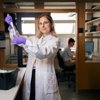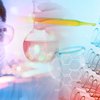Fritextsökning
Artiklar per år
Innehållstyper
-

Bico säljer bolag inom in vitro-testning och digital patologi
Bioteknikbolaget Bico avyttrar Mattek och Visikol, som integrerades i Mattek operationellt förra året, till Sartorius Lab. Köpeskillingen är på 80 miljoner dollar, motsvarande 807 miljoner kronor, på kassa- och skuldfri basis.
-

Success for Genmab's antibody-drug conjugate
The Danish company Genmab has received Japanese approval for its treatment for advanced or recurrent cervical cancer.
-

An organ seldom in the spotlight – but utterly vital
The kidneys consist of more than 40 types of cells and have more functions in the body than most people know. Julie Williams leads AstraZeneca’s work in preclinical research about kidney diseases. “They are probably one of the most complicated organs in the body, and I like a challenge”, she says.
-

Prövning av pillervaccin mot covid-19 avbryts i USA
Det amerikanska hälsodepartementet har beordrat stopp för en statligt finansierad fas IIb-studie som skulle utvärdera ett potentiellt pillervaccin mot covid-19.
-

Efter Trumps nedskärningar – nu ska EU locka över amerikanska toppforskare
USA drar in på statliga forskningsanslag – då ser europeiska aktörer sin chans att locka till sig forskarbegåvningar från andra sidan Atlanten.
-

Cancer researcher: “We can do better and reduce suffering”
Lund University researcher Catharina Hagerling is developing innovative methods to understand metastatic cancer, aiming to create more targeted treatments for patients with disseminated cancer.
-

Investors portföljbolag köper diagnostikföretag – för 22 miljarder kronor
Advanced Instruments har ingått ett bindande avtal om att förvärva Nova Biomedical för 2,2 miljarder dollar, motsvarande cirka 22 miljarder kronor.
-

Aqilion's licensing journey: From Merck partnership to new opportunities
Be extremely meticulous with your scientific data, but spend just as much time and effort on business development. That piece of advice comes from Aqilion's CEO Sarah Fredriksson and is directed at biotech companies aiming to find a good licensing partner.
-

EMA varnar för icke godkända cellterapier
Icke godkända, och därmed olagliga, avancerade terapiläkemedel marknadsförs till patienter i Europa. Det uppger den europeiska läkemedelsmyndigheten EMA, som nu går ut med en varning till allmänheten.
-

A tiny animal with great importance
From the mythical Ganges River to the less sacred, but considerably cleaner waters in KI's aquariums in Solna. The little zebrafish has made an unconscious career – as an increasingly important model organism in medical research.
-

Who pays for Rebecca Doe – and all of us?
Anna Törner on how easily we get used to the idea that healthcare is free - when it really is about how and who pays for it
-

The art of successful licensing – “A lot has to align”
Sharp research, strong data and a high level of innovation are all very good, but more than that is required to achieve the goal of many biotechnology companies: to succeed with a licensing deal.
-

Ukraine war fuels rise of totally resistent bacteria
War-torn Ukraine is not just suffering from hostile attacks from a foreign aggressor, but also from the threat of a totally resistant and contagious bacteria.
-

Security flaw in Swedish breast cancer screening software – woman passed away
A lack of safeguard in Sectra's software led to a woman with breast cancer receiving an incorrect diagnosis. She later passed away. The software is used in 20 out of 21 regions in Sweden. It is also used in neighbouring Nordic countries. “Extremely serious,” says the Sectra CEO to Medtech Magazine.
-

Health politician Lina Nordquist: ”I find it hard to be idle”
She is the pharmacist and researcher who grew tired of the breakthroughs that never materialised and knowledge that never seemed to reach patients, so she decided to make a change from within. Life Science Sweden meets Lina Nordquist, Member of Parliament for the Liberals and their spokesperson on healthcare policy, to have a conversation about reality, politics, and the need for writing.
-

First preterm infants study – a vital step for Neola
After years of developing an advanced lung monitoring system, Neola Medical has received some delightful news: permission to start its first clinical study on preterm born infants.
-

We desire talent to come here, but are we genuinely welcoming them?
Sweden faces significant challenges in creating a truly inclusive environment that makes international professionals feel welcome, valued, and able to build meaningful careers, writes Sarah Lidé in a column.
-

She is CSL Behring's new Nordic General Manager
Since the beginning of january, Helena Bragd is the new Nordic General Manager for the biotech company CSL Behring and CEO of CSL Behring AB.
-

The business coach: “We need to learn from our mistakes”
The past year has been challenging for many biotech companies, with several comapanies facing financial stress and bankruptcy. To understand how entrepreneurs can navigate these tough times, Life Science Sweden spoke to Pia Keyser, a business coach at Umeå Biotech Incubator, who has worked with many companies in the industry.
-

Large study: The benefits and risks of obesity medications
Medications such as Ozempic can reduce the risk of a range of different diseases and health conditions but also increase the risk of others. This is according to a large American study where the connections between GLP-1 receptor agonists and the risk of a variety of health outcomes have been examined.
-

The future of healthcare in focus: ”Together, things happen”
In march, it’s once again time for Fokus Patient, an event for the industry where the patients’ perspective takes center stage. It’s a great way to spread knowledge in Sweden and around the world, according to the initiator Penilla Gunther
-

16 miljoner kronor till ATMP i Västsverige
Genom en miljonsatsning i Västra Götalandsregionen ska små och medelstora life sciene-bolag få stöd för att accelerera utvecklingen inom avancerade terapiläkemedel (ATMP).
-

New cell therapy raises hope for curing type 1 diabetes – "Never succeeded before"
For the first time, a patient with type 1 diabetes has undergone an islet transplantation using genetically modified insulin-producing cells that do not require immunosuppressive drugs. "A major immunological breakthrough," says Professor Per-Ola Carlsson, who leads the clinical study, to Life Science Sweden.